#donald's relatives
Text
And now the next poll, maybe this will be the last poll of this year. And now Donald's relatives, that is, your personal choice.






#poll#this is for fun#donald duck#ducktales#duck comics#duckverse#disney duck comics#donald's relatives#fethry duck#gladstone gander#gus goose#abner whitewater duck#kildare coot#moby duck#abner duck#sgrizzo#paperoga#gastone#disney ducks#disney geese#disney duckverse#donald's cousins#favorite cousin#disney comics#comics#disney cartoons#cartoons
23 notes
·
View notes
Text
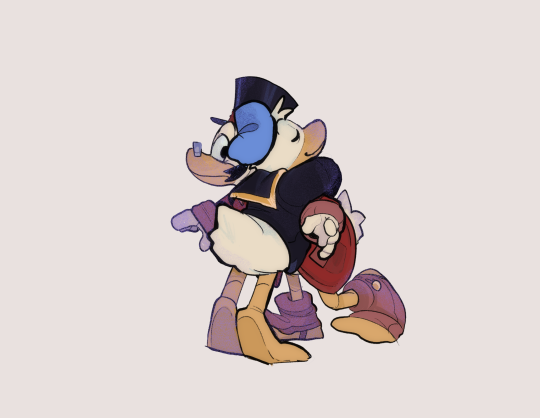
Do you ever just... really need a hug?
Also happy valentines day ^^ I dont have anything for you today except some ducks ^^ the real celebration is all the aros getting some discount chocolate as a treat after today <3
#ispy.png#duckverse#donald duck#scrooge mcduck#disney#disney ducks#duck comics#art#fanart#valentines day more like free chocokate from your relatives day
287 notes
·
View notes
Text
« This is something that I've never seen – not actually made manifest in the courtroom before. Donald Trump's in that courtroom alone.
Jeffrey Dahmer's parents were there every single day.
It is, it is very hard to find a courtroom where the criminal defendant doesn't have a relative sitting there in the front row. »
— Lawrence O’Donnell at MSNBC pointing out the conspicuous absence of any of Trump's relatives in the courtroom at his New York trial. Being compared unfavorably to Jeffrey Dahmer is quite a burn.
Maybe the relatives just don't want to make a big stink about the case.
youtube
O'Donnell said this in conversation with psychologist Dr. Mary Trump – Donald's niece. It would have been fun if she then said she would try to fill one of those empty seats when court is back in session.
#donald trump#trump's new york trial#trump's legal problems#lawrence o'donnell#absence of trump's relatives in court#where's melania?#mary trump#jeffrey dahmer#election 2024#vote blue no matter who
7 notes
·
View notes
Text

adios toy robin. pk is my best friend now
#again. this panel is just SO good lovem him#thank you pk vs dd timecrime#i reblogged one of those discord vs tumblr pfp polls recently#knuckles versus donald is a hilarious concept and i’d love to see it#about an even match between physical ability (relative to their setting) and bad luck/miscommunication
3 notes
·
View notes
Text

Philadelphia, PA., USA: Mr. and Mrs. Donald Levine, sister, and brother-in-law to Grace Kelly, show 10-month-old Anne Kelly, daughter of John B. Kelly Jr., a United Press Radiotelephoto of her aunt Grace and her grandfather entering the Monaco Cathedral on April 19, 1956. The Levines, who are expecting their first child soon, are getting a little parental experience with Anne.
#GRACE KELLY#princess grace#anne kelly#anne oagle#lizanne kelly#elizabeth ann kelly#lizanne kelly levine#donald levine#john b kelly#margaret majer#princesse grace#kelly relatives#grace kelly family#philadelphia history#philly#1956#royal wedding
7 notes
·
View notes
Text
If Donald Trump is allowed to be Donald Trump without getting arrested, you are allowed to be your own glorious self without having imposter syndrome.
#fame is relative#imposter syndrome#be yourself#be fabulous#this is me#stop comparing#you be you#I'll be me#every celebrity has someone they look up to#everyone has someone who looks up to them#Donald Trump might have one been president but I get to write every day and that's all I ask for#do what you love and do it with pride#don't let them tell you you're nothing#because you are EVERYTHING#do what you love
2 notes
·
View notes
Text
It all happens so suddenly. One day everything is great, the next Donald finds out that his brother does experiments on children and a day after that Douglas is dead. And Donald is left with three kids, memories and guilt. Oh, how could he let his little brother die with the belief that he had hated him?
#hello#im back#life is so shit rn so you get donald angst#imagine your closest living relative is a horrible person and then they suddenly die and you are left alone#grieving but also hating yourself for that because they didnt deserve it#donald davenport#douglas davenport#lab rats
41 notes
·
View notes
Video
“Everything is relative.”
One of the eye-opening moments from which my love and fascination of science was born.
The Wonders of Aladdin (1961).
5 notes
·
View notes
Text

2 notes
·
View notes
Note
Whats the most interesting/random fact on ur secret duck project???
I opened this project in 2019,,,,,, and have only begun to actually do anything about it last year hkgcvikhcv
Also Donald's mom punched Roosevelt in the face and cussed him out on two separate occasions
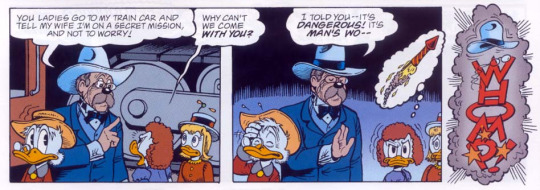
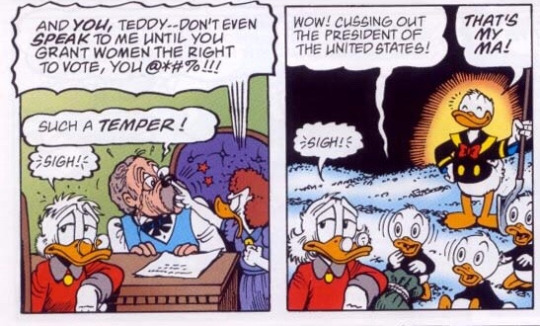
#idk how much I can say without giving away more than I already have khgvkhgcvcf#Its not really an obscure fact but I love bringing it up#look how proud donald is of her lmao#Other then that I guesssss I could mention hwo there was a mcduck who's daughter married a relative of glomgold's#who's one of scrooge's biggest rivals#there's a lot of interesting stuff there ehehvfsgbf
2 notes
·
View notes
Video
youtube
What is wrong with current physics |Sabine Hossenfelder, Bjørn Ekeberg, Roger Penrose, Donald Hoffman, Peter Woit, Becky Parker, Marika Taylor and Eric Weinstein
Mar 23, 2023
#youtube#Sabine Hossenfelder#Bjørn Ekeberg#Roger Penrose#Donald Hoffman#Peter Woit#Becky Parker#Marika Taylor#Eric Weinstein#Quantum#Relativity#General Relativity#Physics
1 note
·
View note
Text
#587: DANIEL ROSS AND THE VAMPIRE DUTCH
#587: DANIEL ROSS AND THE VAMPIRE DUTCH
mike, travis and drunk discuss the following topics….
50 cent penis lawsuit….
the hitler twitter thread…..
black adam is fine…..
after the break, we talk to daniel ross about his role as donald duck, lucky the leprechaun and much much more! follow daniel @actordanielross everywhere and check out his website actordanielross.com
early internet things….
potw: blood relatives/norah jones’…

View On WordPress
#50 CENT#BLACK ADAM#BLOOD RELATIVES#CARTOONS#comedy#DANIEL ROSS#DONALD DUCK#INTERVIEW#LAWSUIT#MATTRESS ADS#PLAYING ALONG WITH NORAH JONES#PODCAST#transformers#VOICE ACTOR
1 note
·
View note
Text
Holy shit, the New York Times is FINALLY interviewing and listening to detransistioners.
The tide is turning.
Opinion by Pamela Paul
As Kids, They Thought They Were Trans. They No Longer Do.
Feb. 2, 2024

Grace Powell was 12 or 13 when she discovered she could be a boy.
Growing up in a relatively conservative community in Grand Rapids, Mich., Powell, like many teenagers, didn’t feel comfortable in her own skin. She was unpopular and frequently bullied. Puberty made everything worse. She suffered from depression and was in and out of therapy.
“I felt so detached from my body, and the way it was developing felt hostile to me,” Powell told me. It was classic gender dysphoria, a feeling of discomfort with your sex.
Reading about transgender people online, Powell believed that the reason she didn’t feel comfortable in her body was that she was in the wrong body. Transitioning seemed like the obvious solution. The narrative she had heard and absorbed was that if you don’t transition, you’ll kill yourself.
At 17, desperate to begin hormone therapy, Powell broke the news to her parents. They sent her to a gender specialist to make sure she was serious. In the fall of her senior year of high school, she started cross-sex hormones. She had a double mastectomy the summer before college, then went off as a transgender man named Grayson to Sarah Lawrence College, where she was paired with a male roommate on a men’s floor. At 5-foot-3, she felt she came across as a very effeminate gay man.
At no point during her medical or surgical transition, Powell says, did anyone ask her about the reasons behind her gender dysphoria or her depression. At no point was she asked about her sexual orientation. And at no point was she asked about any previous trauma, and so neither the therapists nor the doctors ever learned that she’d been sexually abused as a child.
“I wish there had been more open conversations,” Powell, now 23 and detransitioned, told me. “But I was told there is one cure and one thing to do if this is your problem, and this will help you.”
Progressives often portray the heated debate over childhood transgender care as a clash between those who are trying to help growing numbers of children express what they believe their genders to be and conservative politicians who won’t let kids be themselves.
But right-wing demagogues are not the only ones who have inflamed this debate. Transgender activists have pushed their own ideological extremism, especially by pressing for a treatment orthodoxy that has faced increased scrutiny in recent years. Under that model of care, clinicians are expected to affirm a young person’s assertion of gender identity and even provide medical treatment before, or even without, exploring other possible sources of distress.
Many who think there needs to be a more cautious approach — including well-meaning liberal parents, doctors and people who have undergone gender transition and subsequently regretted their procedures — have been attacked as anti-trans and intimidated into silencing their concerns.
And while Donald Trump denounces “left-wing gender insanity” and many trans activists describe any opposition as transphobic, parents in America’s vast ideological middle can find little dispassionate discussion of the genuine risks or trade-offs involved in what proponents call gender-affirming care.
Powell’s story shows how easy it is for young people to get caught up by the pull of ideology in this atmosphere.
“What should be a medical and psychological issue has been morphed into a political one,” Powell lamented during our conversation. “It’s a mess.”
A New and Growing Group of Patients
Many transgender adults are happy with their transitions and, whether they began to transition as adults or adolescents, feel it was life changing, even lifesaving. The small but rapidly growing number of children who express gender dysphoria and who transition at an early age, according to clinicians, is a recent and more controversial phenomenon.
Laura Edwards-Leeper, the founding psychologist of the first pediatric gender clinic in the United States, said that when she started her practice in 2007, most of her patients had longstanding and deep-seated gender dysphoria. Transitioning clearly made sense for almost all of them, and any mental health issues they had were generally resolved through gender transition.
“But that is just not the case anymore,” she told me recently. While she doesn’t regret transitioning the earlier cohort of patients and opposes government bans on transgender medical care, she said, “As far as I can tell, there are no professional organizations who are stepping in to regulate what’s going on.”
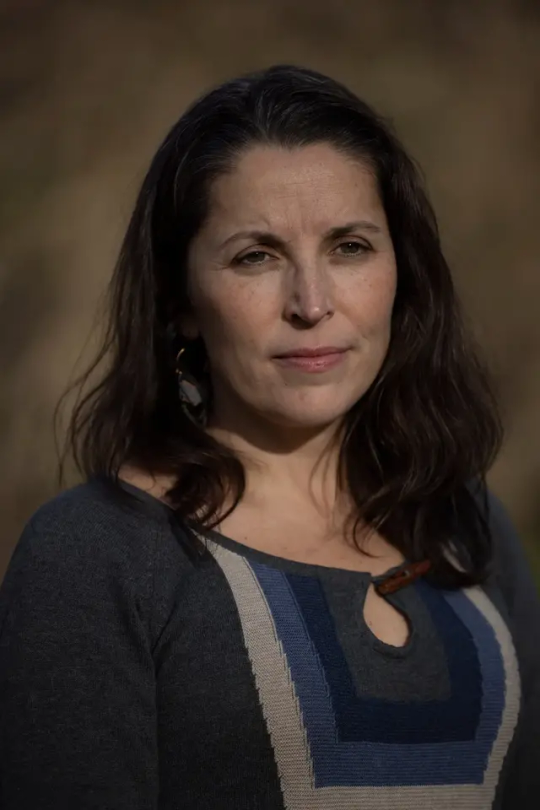
Most of her patients now, she said, have no history of childhood gender dysphoria. Others refer to this phenomenon, with some controversy, as rapid onset gender dysphoria, in which adolescents, particularly tween and teenage girls, express gender dysphoria despite never having done so when they were younger. Frequently, they have mental health issues unrelated to gender. While professional associations say there is a lack of quality research on rapid onset gender dysphoria, several researchers have documented the phenomenon, and many health care providers have seen evidence of it in their practices.
“The population has changed drastically,” said Edwards-Leeper, a former head of the Child and Adolescent Committee for the World Professional Association for Transgender Health, the organization responsible for setting gender transition guidelines for medical professionals.
For these young people, she told me, “you have to take time to really assess what’s going on and hear the timeline and get the parents’ perspective in order to create an individualized treatment plan. Many providers are completely missing that step.”
Yet those health care professionals and scientists who do not think clinicians should automatically agree to a young person’s self-diagnosis are often afraid to speak out. A report commissioned by the National Health Service about Britain’s Tavistock gender clinic, which, until it was ordered to be shut down, was the country’s only health center dedicated to gender identity, noted that “primary and secondary care staff have told us that they feel under pressure to adopt an unquestioning affirmative approach and that this is at odds with the standard process of clinical assessment and diagnosis that they have been trained to undertake in all other clinical encounters.”
Of the dozens of students she’s trained as psychologists, Edwards-Leeper said, few still seem to be providing gender-related care. While her students have left the field for various reasons, “some have told me that they didn’t feel they could continue because of the pushback, the accusations of being transphobic, from being pro-assessment and wanting a more thorough process,” she said.
They have good reasons to be wary. Stephanie Winn, a licensed marriage and family therapist in Oregon, was trained in gender-affirming care and treated multiple transgender patients. But in 2020, after coming across detransition videos online, she began to doubt the gender-affirming model. In 2021 she spoke out in favor of approaching gender dysphoria in a more considered way, urging others in the field to pay attention to detransitioners, people who no longer consider themselves transgender after undergoing medical or surgical interventions. She has since been attacked by transgender activists. Some threatened to send complaints to her licensing board saying that she was trying to make trans kids change their minds through conversion therapy.
In April 2022, the Oregon Board of Licensed Professional Counselors and Therapists told Winn that she was under investigation. Her case was ultimately dismissed, but Winn no longer treats minors and practices only online, where many of her patients are worried parents of trans-identifying children.
“I don’t feel safe having a location where people can find me,” she said.
Detransitioners say that only conservative media outlets seem interested in telling their stories, which has left them open to attacks as hapless tools of the right, something that frustrated and dismayed every detransitioner I interviewed. These are people who were once the trans-identified kids that so many organizations say they’re trying to protect — but when they change their minds, they say, they feel abandoned.
Most parents and clinicians are simply trying to do what they think is best for the children involved. But parents with qualms about the current model of care are frustrated by what they see as a lack of options.
Parents told me it was a struggle to balance the desire to compassionately support a child with gender dysphoria while seeking the best psychological and medical care. Many believed their kids were gay or dealing with an array of complicated issues. But all said they felt compelled by gender clinicians, doctors, schools and social pressure to accede to their child’s declared gender identity even if they had serious doubts. They feared it would tear apart their family if they didn’t unquestioningly support social transition and medical treatment. All asked to speak anonymously, so desperate were they to maintain or repair any relationship with their children, some of whom were currently estranged.
Several of those who questioned their child’s self-diagnosis told me it had ruined their relationship. A few parents said simply, “I feel like I’ve lost my daughter.”
One mother described a meeting with 12 other parents in a support group for relatives of trans-identified youth where all of the participants described their children as autistic or otherwise neurodivergent. To all questions, the woman running the meeting replied, “Just let them transition.” The mother left in shock. How would hormones help a child with obsessive-compulsive disorder or depression? she wondered.
Some parents have found refuge in anonymous online support groups. There, people share tips on finding caregivers who will explore the causes of their children’s distress or tend to their overall emotional and developmental health and well-being without automatically acceding to their children’s self-diagnosis.
Many parents of kids who consider themselves trans say their children were introduced to transgender influencers on YouTube or TikTok, a phenomenon intensified for some by the isolation and online cocoon of Covid. Others say their kids learned these ideas in the classroom, as early as elementary school, often in child-friendly ways through curriculums supplied by trans rights organizations, with concepts like the gender unicorn or the Genderbread person.
‘Do You Want a Dead Son or a Live Daughter?’
After Kathleen’s 15-year-old son, whom she described as an obsessive child, abruptly told his parents he was trans, the doctor who was going to assess whether he had A.D.H.D. referred him instead to someone who specialized in both A.D.H.D. and gender. Kathleen, who asked to be identified only by her first name to protect her son’s privacy, assumed that the specialist would do some kind of evaluation or assessment. That was not the case.
The meeting was brief and began on a shocking note. “In front of my son, the therapist said, ‘Do you want a dead son or a live daughter?’” Kathleen recounted.
Parents are routinely warned that to pursue any path outside of agreeing with a child’s self-declared gender identity is to put a gender dysphoric youth at risk for suicide, which feels to many people like emotional blackmail. Proponents of the gender-affirming model have cited studies showing an association between that standard of care and a lower risk of suicide. But those studies were found to have methodological flaws or have been deemed not entirely conclusive. A survey of studies on the psychological effects of cross-sex hormones, published three years ago in The Journal of the Endocrine Society, the professional organization for hormone specialists, found it “could not draw any conclusions about death by suicide.” In a letter to The Wall Street Journal last year, 21 experts from nine countries said that survey was one reason they believed there was “no reliable evidence to suggest that hormonal transition is an effective suicide prevention measure.”
Moreover, the incidence of suicidal thoughts and attempts among gender dysphoric youth is complicated by the high incidence of accompanying conditions, such as autism spectrum disorder. As one systematic overview put it, “Children with gender dysphoria often experience a range of psychiatric comorbidities, with a high prevalence of mood and anxiety disorders, trauma, eating disorders and autism spectrum conditions, suicidality and self-harm.”
But rather than being treated as patients who deserve unbiased professional help, children with gender dysphoria often become political pawns.
Conservative lawmakers are working to ban access to gender care for minors and occasionally for adults as well. On the other side, however, many medical and mental health practitioners feel their hands have been tied by activist pressure and organizational capture. They say that it has become difficult to practice responsible mental health care or medicine for these young people.
Pediatricians, psychologists and other clinicians who dissent from this orthodoxy, believing that it is not based on reliable evidence, feel frustrated by their professional organizations. The American Psychological Association, American Psychiatric Association and the American Academy of Pediatrics have wholeheartedly backed the gender-affirming model.
In 2021, Aaron Kimberly, a 50-year-old trans man and registered nurse, left the clinic in British Columbia where his job focused on the intake and assessment of gender-dysphoric youth. Kimberly received a comprehensive screening when he embarked on his own successful transition at age 33, which resolved the gender dysphoria he experienced from an early age.
But when the gender-affirming model was introduced at his clinic, he was instructed to support the initiation of hormone treatment for incoming patients regardless of whether they had complex mental problems, experiences with trauma or were otherwise “severely unwell,” Kimberly said. When he referred patients for further mental health care rather than immediate hormone treatment, he said he was accused of what they called gatekeeping and had to change jobs.
“I realized something had gone totally off the rails,” Kimberly, who subsequently founded the Gender Dysphoria Alliance and the L.G.B.T. Courage Coalition to advocate better gender care, told me.
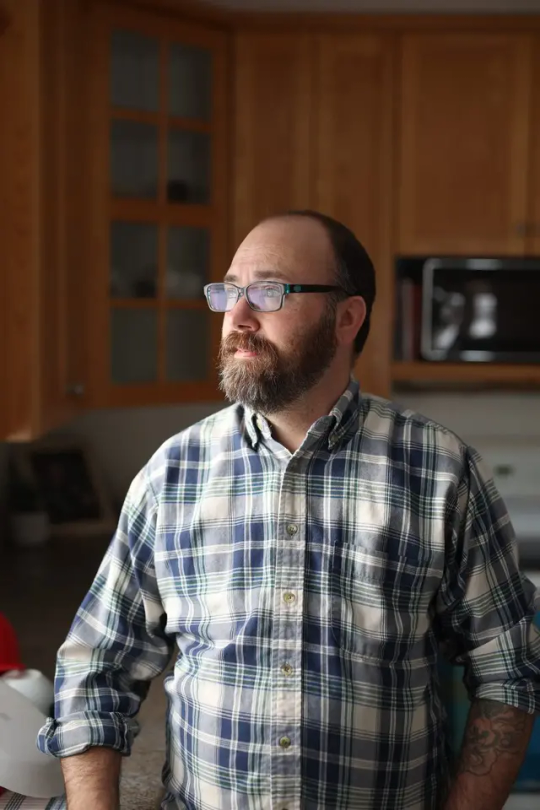
Gay men and women often told me they fear that same-sex-attracted kids, especially effeminate boys and tomboy girls who are gender nonconforming, will be transitioned during a normal phase of childhood and before sexual maturation — and that gender ideology can mask and even abet homophobia.
As one detransitioned man, now in a gay relationship, put it, “I was a gay man pumped up to look like a woman and dated a lesbian who was pumped up to look like a man. If that’s not conversion therapy, I don’t know what is.”
“I transitioned because I didn’t want to be gay,” Kasey Emerick, a 23-year-old woman and detransitioner from Pennsylvania, told me. Raised in a conservative Christian church, she said, “I believed homosexuality was a sin.”
When she was 15, Emerick confessed her homosexuality to her mother. Her mother attributed her sexual orientation to trauma — Emerick’s father was convicted of raping and assaulting her repeatedly when she was between the ages of 4 and 7 — but after catching Emerick texting with another girl at age 16, she took away her phone. When Emerick melted down, her mother admitted her to a psychiatric hospital. While there, Emerick told herself, “If I was a boy, none of this would have happened.”
In May 2017, Emerick began searching “gender” online and encountered trans advocacy websites. After realizing she could “pick the other side,” she told her mother, “I’m sick of being called a dyke and not a real girl.” If she were a man, she’d be free to pursue relationships with women.
That September, she and her mother met with a licensed professional counselor for the first of two 90-minute consultations. She told the counselor that she had wished to be a Boy Scout rather than a Girl Scout. She said she didn’t like being gay or a butch lesbian. She also told the counselor that she had suffered from anxiety, depression and suicidal ideation. The clinic recommended testosterone, which was prescribed by a nearby L.G.B.T.Q. health clinic. Shortly thereafter, she was also diagnosed with A.D.H.D. She developed panic attacks. At age 17, she was cleared for a double mastectomy.
“I’m thinking, ‘Oh my God, I’m having my breasts removed. I’m 17. I’m too young for this,’” she recalled. But she went ahead with the operation.
“Transition felt like a way to control something when I couldn’t control anything in my life,” Emerick explained. But after living as a trans man for five years, Emerick realized her mental health symptoms were only getting worse. In the fall of 2022, she came out as a detransitioner on Twitter and was immediately attacked. Transgender influencers told her she was bald and ugly. She received multiple threats.
“I thought my life was over,” she said. “I realized that I had lived a lie for over five years.”

Today Emerick’s voice, permanently altered by testosterone, is that of a man. When she tells people she’s a detransitioner, they ask when she plans to stop taking T and live as a woman. “I’ve been off it for a year,” she replies.
Once, after she recounted her story to a therapist, the therapist tried to reassure her. If it’s any consolation, the therapist remarked, “I would never have guessed that you were once a trans woman.” Emerick replied, “Wait, what sex do you think I am?”
To the trans activist dictum that children know their gender best, it is important to add something all parents know from experience: Children change their minds all the time. One mother told me that after her teenage son desisted — pulled back from a trans identity before any irreversible medical procedures — he explained, “I was just rebelling. I look at it like a subculture, like being goth.”
“The job of children and adolescents is to experiment and explore where they fit into the world, and a big part of that exploration, especially during adolescence, is around their sense of identity,” Sasha Ayad, a licensed professional counselor based in Phoenix, told me. “Children at that age often present with a great deal of certainty and urgency about who they believe they are at the time and things they would like to do in order to enact that sense of identity.”
Ayad, a co-author of “When Kids Say They’re Trans: A Guide for Thoughtful Parents,” advises parents to be wary of the gender affirmation model. “We’ve always known that adolescents are particularly malleable in relationship to their peers and their social context and that exploration is often an attempt to navigate difficulties of that stage, such as puberty, coming to terms with the responsibilities and complications of young adulthood, romance and solidifying their sexual orientation,” she told me. For providing this kind of exploratory approach in her own practice with gender dysphoric youth, Ayad has had her license challenged twice, both times by adults who were not her patients. Both times, the charges were dismissed.
Studies show that around eight in 10 cases of childhood gender dysphoria resolve themselves by puberty and 30 percent of people on hormone therapy discontinue its use within four years, though the effects, including infertility, are often irreversible.
Proponents of early social transition and medical interventions for gender dysphoric youth cite a 2022 study showing that 98 percent of children who took both puberty blockers and cross-sex hormones continued treatment for short periods, and another study that tracked 317 children who socially transitioned between the ages of 3 and 12, which found that 94 percent of them still identified as transgender five years later. But such early interventions may cement children’s self-conceptions without giving them time to think or sexually mature.
‘The Process of Transition Didn’t Make Me Feel Better’
At the end of her freshman year of college, Grace Powell, horrifically depressed, began dissociating, feeling detached from her body and from reality, which had never happened to her before. Ultimately, she said, “the process of transition didn’t make me feel better. It magnified what I found was wrong with myself.”
“I expected it to change everything, but I was just me, with a slightly deeper voice,” she added. “It took me two years to start detransitioning and living as Grace again.”
She tried in vain to find a therapist who would treat her underlying issues, but they kept asking her: How do you want to be seen? Do you want to be nonbinary? Powell wanted to talk about her trauma, not her identity or her gender presentation. She ended up getting online therapy from a former employee of the Tavistock clinic in Britain. This therapist, a woman who has broken from the gender-affirming model, talked Grace through what she sees as her failure to launch and her efforts to reset. The therapist asked questions like: Who is Grace? What do you want from your life? For the first time, Powell felt someone was seeing and helping her as a person, not simply looking to slot her into an identity category.
Many detransitioners say they face ostracism and silencing because of the toxic politics around transgender issues.
“It is extraordinarily frustrating to feel that something I am is inherently political,” Powell told me. “I’ve been accused multiple times that I’m some right-winger who’s making a fake narrative to discredit transgender people, which is just crazy.”
While she believes there are people who benefit from transitioning, “I wish more people would understand that there’s not a one-size-fits-all solution,” she said. “I wish we could have that conversation.”
In a recent study in The Archives of Sexual Behavior, about 40 young detransitioners out of 78 surveyed said they had suffered from rapid onset gender dysphoria. Trans activists have fought hard to suppress any discussion of rapid onset gender dysphoria, despite evidence that the condition is real. In its guide for journalists, the activist organization GLAAD warns the media against using the term, as it is not “a formal condition or diagnosis.” Human Rights Campaign, another activist group, calls it “a right-wing theory.” A group of professional organizations put out a statement urging clinicians to eliminate the term from use.
Nobody knows how many young people desist after social, medical or surgical transitions. Trans activists often cite low regret rates for gender transition, along with low figures for detransition. But those studies, which often rely on self-reported cases to gender clinics, likely understate the actual numbers. None of the seven detransitioners I interviewed, for instance, even considered reporting back to the gender clinics that prescribed them medication they now consider to have been a mistake. Nor did they know any other detransitioners who had done so.
As Americans furiously debate the basis of transgender care, a number of advances in understanding have taken place in Europe, where the early Dutch studies that became the underpinning of gender-affirming care have been broadly questioned and criticized. Unlike some of the current population of gender dysphoric youth, the Dutch study participants had no serious psychological conditions. Those studies were riddled with methodological flaws and weaknesses. There was no evidence that any intervention was lifesaving. There was no long-term follow-up with any of the study’s 55 participants or the 15 who dropped out. A British effort to replicate the study said that it “identified no changes in psychological function” and that more studies were needed.
In countries like Sweden, Norway, France, the Netherlands and Britain — long considered exemplars of gender progress — medical professionals have recognized that early research on medical interventions for childhood gender dysphoria was either faulty or incomplete. Last month, the World Health Organization, in explaining why it is developing “a guideline on the health of trans and gender diverse people,” said it will cover only adults because “the evidence base for children and adolescents is limited and variable regarding the longer-term outcomes of gender-affirming care for children and adolescents.”
But in America, and Canada, the results of those widely criticized Dutch studies are falsely presented to the public as settled science.
Other countries have recently halted or limited the medical and surgical treatment of gender dysphoric youth, pending further study. Britain’s Tavistock clinic was ordered to be shut down next month, after a National Health Service-commissioned investigation found deficiencies in service and “a lack of consensus and open discussion about the nature of gender dysphoria and therefore about the appropriate clinical response.”
Meanwhile, the American medical establishment has hunkered down, stuck in an outdated model of gender affirmation. The American Academy of Pediatrics only recently agreed to conduct more research in response to yearslong efforts by dissenting experts, including Dr. Julia Mason, a self-described “bleeding-heart liberal.”
The larger threat to transgender people comes from Republicans who wish to deny them rights and protections. But the doctrinal rigidity of the progressive wing of the Democratic Party is disappointing, frustrating and counterproductive.
“I was always a liberal Democrat,” one woman whose son desisted after social transition and hormone therapy told me. “Now I feel politically homeless.”
She noted that the Biden administration has “unequivocally” supported gender-affirming care for minors, in cases in which it deems it “medically appropriate and necessary.” Rachel Levine, the assistant secretary for health at the U.S. Department of Health and Human Services, told NPR in 2022 that “there is no argument among medical professionals — pediatricians, pediatric endocrinologists, adolescent medicine physicians, adolescent psychiatrists, psychologists, et cetera — about the value and the importance of gender-affirming care.”
Of course, politics should not influence medical practice, whether the issue is birth control, abortion or gender medicine. But unfortunately, politics has gotten in the way of progress. Last year The Economist published a thorough investigation into America’s approach to gender medicine. Zanny Minton Beddoes, the editor, put the issue into political context. “If you look internationally at countries in Europe, the U.K. included, their medical establishments are much more concerned,” Beddoes told Vanity Fair. “But here — in part because this has become wrapped up in the culture wars where you have, you know, crazy extremes from the Republican right — if you want to be an upstanding liberal, you feel like you can’t say anything.”
Some people are trying to open up that dialogue, or at least provide outlets for kids and families to seek a more therapeutic approach to gender dysphoria.
Paul Garcia-Ryan is a psychotherapist in New York who cares for kids and families seeking holistic, exploratory care for gender dysphoria. He is also a detransitioner who from ages 15 to 30 fully believed he was a woman.
Garcia-Ryan is gay, but as a boy, he said, “it was much less threatening to my psyche to think that I was a straight girl born into the wrong body — that I had a medical condition that could be tended to.” When he visited a clinic at 15, the clinician immediately affirmed he was female, and rather than explore the reasons for his mental distress, simply confirmed Garcia-Ryan’s belief that he was not meant to be a man.
Once in college, he began medically transitioning and eventually had surgery on his genitals. Severe medical complications from both the surgery and hormone medication led him to reconsider what he had done, and to detransition. He also reconsidered the basis of gender affirmation, which, as a licensed clinical social worker at a gender clinic, he had been trained in and provided to clients.
“You’re made to believe these slogans,” he said. “Evidence-based, lifesaving care, safe and effective, medically necessary, the science is settled — and none of that is evidence based.”

Garcia-Ryan, 32, is now the board president of Therapy First, an organization that supports therapists who do not agree with the gender affirmation model. He thinks transition can help some people manage the symptoms of gender dysphoria but no longer believes anyone under 25 should socially, medically or surgically transition without exploratory psychotherapy first.
“When a professional affirms a gender identity for a younger person, what they are doing is implementing a psychological intervention that narrows a person’s sense of self and closes off their options for considering what’s possible for them,” Garcia-Ryan told me.
Instead of promoting unproven treatments for children, which surveys show many Americans are uncomfortable with, transgender activists would be more effective if they focused on a shared agenda. Most Americans across the political spectrum can agree on the need for legal protections for transgender adults. They would also probably support additional research on the needs of young people reporting gender dysphoria so that kids could get the best treatment possible.
A shift in this direction would model tolerance and acceptance. It would prioritize compassion over demonization. It would require rising above culture-war politics and returning to reason. It would be the most humane path forward. And it would be the right thing to do.
*~*~*~*~*~*
For those who want tor ead more by those fighting the cancellation forquestioning, read:
Graham Lineham, who's been fighting since the beginning and paid the price, but is not seeing things turn around.
The Glinner Update, Grahan Linehan's Substack.
Kellie-Jay Keen @ThePosieParker, who's been physically attacked for organizing events for women demanding women-only spaces.
REDUXX, Feminst news & opinion.
Gays Against Groomers @againstgrmrs, A nonprofit of gay people and others within the community against the sexualization, indoctrination and medicalization of children under the guise of "LGBTQIA+"
#detransitioners#detransition#gender critical#New York Times#gays#lesbians#trans#trans insanity#long post#article#detrans#transgender#post trans#desisted
687 notes
·
View notes
Text
Things I screamed about in ATSV (spoilers)
-Got to rewatch the film so I’m just going to add the colours changing to warmer tones when Gwen hugs her father. Not even ten minutes in and I was already crying.
-Realised that we missed the Gwen-Vulture fight BUT got to see Jessica Drew enter the scene like a bad ass in her bad ass bike and hearing the audience collectively say ‘me too’ when Gwen asked if Jessica could adopt her.
-Screaming OSCAR ISAAC when Miguel spoke
-Lyla. Just Lyla.
- ‘Do you say anything other than no?’ ‘No-YES!’ more of miguel and jessica pls
-The Spot’s introduction. I didn’t see any promotional stuff, teasers or even trailers before watching this film so I had no idea who or what the The Spot was which was great because he really went from villain of the week to villain of the movie. And they clearly had a great time choreographing the fight scenes with him
-Miles’ heating up the beef patty while the spot and the convenience store man argue
-Miles patting the spot’s with a ‘good cow’ text
-Gwen and Miles both having to deepen their voices to avoid being recognised by their respective cop dads
-Miles saying that he can get two cakes when the counsellor says you can’t have your cake and eat it too and then bringing two cakes for his father’s party and neither of them saying what he wanted to convey.
-Rio and Jeff scolding an annoyed miles but instantly smiling when a relative hugs them what an universal experience
-Gwen teasing Miles for drawing her in his notebook almost obsessively but also breaking the biggest rule to spend time with him knowing the consequences.
-As they went to talk, my friend leaned over and said ‘yeah I bet they will talk’ and when they only talked he groaned very loudly at which point I had to remind him Miles was only 15
-Watching Jeff talk to Spiderman about his son not knowing his son is spiderman
-The DJ increasing the volume when Miles’ parents started scolding him in the middle of the party (the real mvp of the movie actually)
-JK Simmons cameo that no one seems to be talking about??? Embarrassingly enough I had to literally scream into my friend’s ear for most of the people to realise it was indeed JK Simmons
-Just the entire Mumbattan scene. It was so exciting to see my city be represented like that, still a bit cliched in my opinion but not like Slumdog so obviously they have updated their views. Everything from the traffic gag to Pav’s rant about chai tea had the theatre howling. Also the detail of the thought boxes (?) and sounds being written in Hindi
-Screaming DANIEL KALUUYA
-My friend and I are huge fans of the UK punk scene (her for the ideologies and myself for the music and fashion) so Hobie was a dream come true. He was already super cool with his guitar and mohawk costume but when he revealed his face it was just so amazing
-Gayatri is every indian’s dream girl with her modern shirt-flannel and jeans combo mixed with bangles and piercings I really wish we get to see more of her in the next movie. Anyway there was a lot of wolf-whistling and hooting for her and Pav
-Also Pavitr literally means pure I don’t know if they did that on purpose or not but I love it
-His pet name being Pav cured my soul
-’This is the most emotional I have seen him’ and Captain Singh has no emotions at all
-I want to see how they came up with so many spider designs because each was so unique and immediately endearing. My friend who is also a big dinosaur fan screamed DINOSAUR
-Kind of obsessed with how detailed Ben Reilly’s arms are they did not need to go that hard with it
-Tom Holland’s Spider-Man being referred to as ‘the little nerd’ by Miguel
-When everyone was making puns about the Spot my friend leaned over and said ‘i wonder which hole the spot prefers’ it is a miracle we are still friends actually
-The Donald Grover cameo!!!
-Peter B Parker having a cute little baby with the love of his life is what he deserves
-Miguel O Hara is one step away from becoming a Batman-Spiderman
-Hobie’s admiration for Mayday being the avatar of chaos Spider-baby
-Screaming ANDY SAMBERG
-I think they saw the appreciation for the art style in the previous film and then trebled it for this film and I cannot thank them enough for it
-Peter complaining about how Miguel breaks the Spiderman tradition of being funny and witty and Miguel being the first anomaly
-Every scene with the Spot is very unnerving because as I said, you watch him transform from this joker to a literal void of vengeance and it is every bit of terrifying
-Miguel is a man suffering from the destruction of an entire universe because of his selfish actions and forcing that anomaly narrative on a fifteen year old boy who became a spiderman on accident and doesn’t want his father to die because of that. Unlike the Spot, who isn’t even human anymore, Miguel is drowning in grief and guilt and trying to ignore it by holding the weight of the spider-verse on his shoulder. I hated him so much for making a boy go through that but then I just couldn’t in the end.
-Andrew Garfield and Tobey Maguire cameo!!! Hopefully we’ll get a fun Tom Holland one too in the next movie.
-’Let me guess, he died?’ being a therapist for Spider Men must be a fairly boring job after a few patients.
-I just loved the absolute of wrongness of the scene where Miles returns ‘home’. The rain and darkness. I didn’t really think about Rio asking Miles what happened to his hair because I thought she was referring to the rain (although of course she wouldn’t ask him why his hair was wet when it was obviously raining outside) but realised something was wrong when he didn’t know about comic con but she did because in the first film there’s a joke about Peter B Parker explaining the concept to Miles.
- This movie is not good for my father related issues
-The glaring neon welcome sign when the gang end up in Earth 42
-How did Uncle Aaron get even scarier?
-Miles being the Prowler is honestly a great twist I saw it coming but still felt the shock of the reveal
-Prowler Miles having an accented voice meaning his father probably died when he was young and he only had his mom growing up
-Can’t wait for the original spider team to return for the third film seeing as they brought back Spider-Man Noir and Spider Ham and Peni Parker
-Screaming WHAT when the ‘to be continued’ appeared because that cliffhanger is absolutely destructive. All that adrenaline and excitement just popped. I’m still oscillating between being impressed and being disappointed.
I probably skipped over a lot of other scenes because these were the most memorable and I only watched the film once (unfortunate) but I can’t wait for the movie to hit streaming services and watch it again and again for all the other details I missed. Ill probably keep adding things as I remember
#across the spiderverse#atsv#miles morales#gwen stacy#hobie#pavitr#miguel o'hara#jessica drew#peter b parker#the ultimate spiderman#spiderman#spiderman noir#spider ham#rio morales#prowler
2K notes
·
View notes
Text
An headcanon for every Tokyo Revengers character. Some are funny, other are not.
Mikey favorite holiday is Halloween cause he can eat as many sweets as he wants and nobody can tell him shit.
Draken secretly wants to go to a spa with Emma. Draken babysits Toman, Emma takes care of the Sano household and they need to rest. He gets flustered if he thinks about sharing a bed with her or taking a bath together at the offsprings.
Baji feeds stray cats and others animals. Animals are naturally drawn to him for some reasons.
Chifuyu likes to watch TV programs of plane crashes. He dreams to be a pilot and he wants to learn how to avoid situations like the ones in the programs.
Takemichi started reading and watching thrillers in the hope they help him sharpen his ability to investigate
Kazutora still has nightmares of his father beating his mother.
Mitsuya keeps himself updated on what is popular amongs kids so he can sew cool things to his sisters like clothes or stuffed animal.
Hakkai is secretly learning Italian since he loves the Godfather series.
Taiju favorite film is Shark Tale.
Pahchin sleeps cuddling his dog.
Pehyan reads scientific books so he can came up with more witty come backs on Pahchin brain.
Angry is really loved by the elderly people in his neighborhood because he's always ready to help them in any way despite his grumpy face. One of the grannies taught him the perfect recipe for ramen.
Smiley is an hardcore naruhina shipper and won't hesitate to fight if someone insults his otp.
When Mucho saw Sanzu for the first time he thought he seemed like a stray cat. That's why he approached him with food aka cheesecake.
Sanzu would like to fix his relationship with Senju but he doesn't know how. Senju is always with Takeomi and he hates Takeomi. He's also scared that if he stops checking on Mikey, even for a second, something bad will happen to him and Shinichiro would have died in vain.
Kisaki has an album of pics of Hinata that he took when she didn't notice.
Hanma really loves movies with a lot of action and comments loud every scene of violence saying what he would have done instead if he was the protagonist.
Kokonoi talks about his days and his thoughts to a framed pic of Akane. He feels like she's still with him.
Inui plays guitar and he's interested in spiritism.
Izana throws darts to a Karen Kurokawa pic pinned on the wall because she ruined his life and his relationship with Emma and Shinichiro.
Kakucho shaves his hair by himself. He's not comfortable with people touching his scar.
Shion is unexpectedly good with children. He's a bit chaotic but overall a good babysitter.
Mochi is really good at cooking and he's proud of it.
Rindou started going to the gym because he was tired of being teased for his chubby cheeks. His guilty pleasure is eating Mac Donald food.
Ran loves 70s lamps, the one with bubbles that are moving up and down inside. They help him sleep.
South loves to dance Latin dances like samba, cha cha cha, rumba etc...
Wakasa has got some fishing trophies in his apartment.
Benkei appears as a tough guy but he loves to sleep with plushies.
Shinichiro has got an organizer that uses as his diary in which he writes his thoughts and notes all of his siblings birthdays.
Takeomi is always scolded by his relatives because of how he wasted his life, raised Haru to be a lunatic and ruined the relationship between Haru and Senju.
Hinata secretly trains in martial arts to help Takemichi, even though she knew he probably won't let her take part in a fight.
Emma often thinks at how good it would be if Izana lives with them. She wants him to have a family.
Yuzuha listen to heavy metal as a let out of her frustration for living with Taiju.
Senju sometimes wants to be adopted by Wakasa so she won't have Takeomi around and maybe Sanzu would visit her. She also hate Concordes.
#tokyo revengers#tokyo revengers headcanons#mikey tokyo revengers#draken#baji keisuke#chifuyu x reader#mitsuya takashi#tenjiku#ran haitani#rindou haitani#izana kurokawa#kakucho
606 notes
·
View notes
Text

Mr. and Mrs. Donald Levine, Princess Grace's sister and brother-in-law in the 1990s.
3 notes
·
View notes